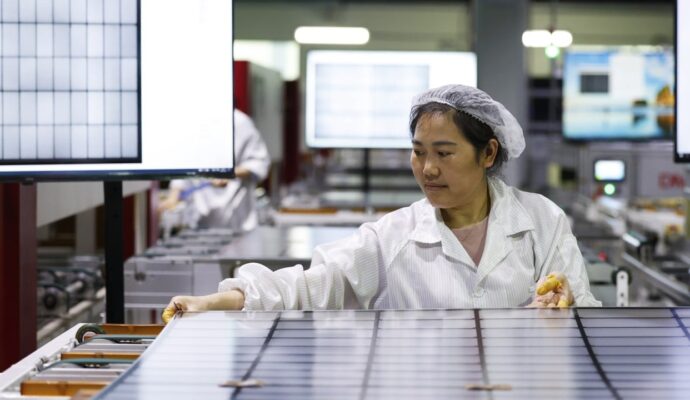The statements came after Japan said in March that it would require several Japanese companies, including leading semiconductor manufacturing equipment maker Tokyo Electron, to apply for licences to ship 23 types of cutting-edge chip-making tools.
The expanded rules are set to go into effect in July, subject to public comment.
The US, Japan and the Netherlands reportedly reached an agreement in January to curb the export of certain advanced chip-making equipment to China, a move that would hinder Beijing’s ambitions to shore up domestic semiconductor manufacturing.
After the news broke, Chinese semiconductor companies scrambled to stockpile chip-making equipment, spare parts and other related materials, as many still depend on imported tools in their operations despite Beijing’s pursuit of technological self-reliance.
A worker at a semiconductor chip workshop in Suqian, China’s eastern Jiangsu province. Photo: AFP
Beijing in April called on the World Trade Organization to review the US-Netherlands-Japan agreement, saying it may have violated “the principle of openness and transparency” of the trade body, according to Chinese state broadcaster CCTV.
A Chinese commerce department official said during a video conference with Japanese counterparts in February that Beijing hoped Tokyo could provide enterprises with a “fair, non-discriminatory and predictable” business environment, and safeguard bilateral economic and trade cooperation, according to a ministry statement.
The CSIA on Friday warned that Beijing may respond appropriately to Japan’s export restrictions.
“The CSIA is committed to safeguarding the legitimate rights of its 900 members, and shall call on the Chinese government to take resolute countermeasures,” it said.
The trade group also said that Japanese companies could “suffer significantly” from reduced profits as a result of Tokyo’s planned control measures, leading to less budget for technological innovation and undermining their global competitiveness.


